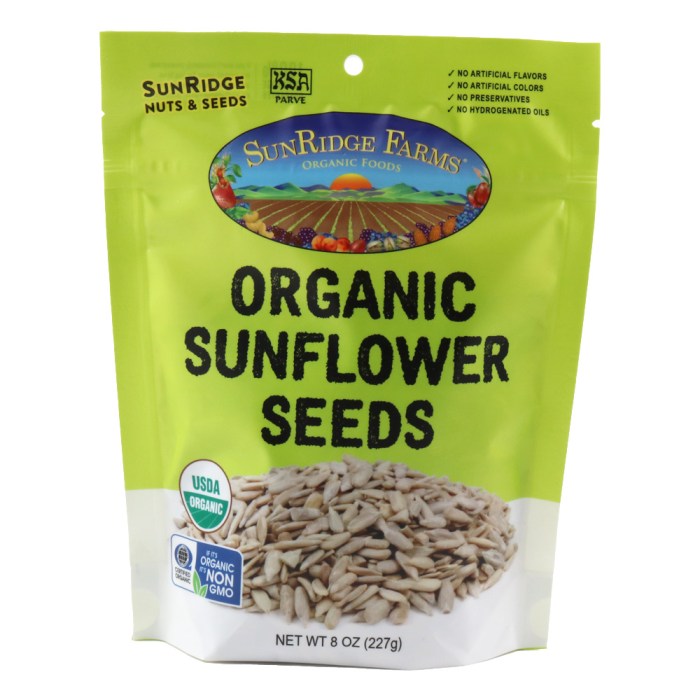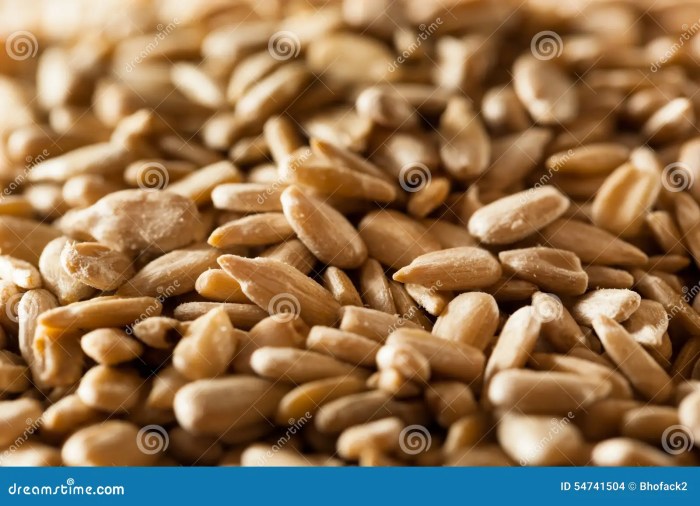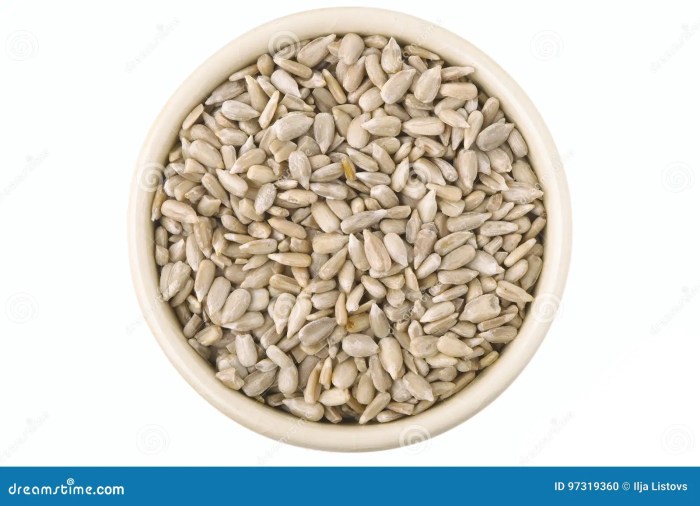Can You Plant Hulled Sunflower Seeds?
Planting Hulled Sunflower Seeds: Can You Plant Hulled Sunflower Seeds
Can you plant hulled sunflower seeds – Growing sunflowers from hulled seeds offers a rewarding experience, whether you’re aiming for a vibrant garden display or a bountiful harvest of seeds. This guide provides a comprehensive overview of the process, from germination to harvesting, focusing specifically on hulled seeds.
Germination of Hulled Sunflower Seeds
Hulled sunflower seeds, lacking their outer shell, germinate slightly faster than unhulled seeds because the protective layer doesn’t need to be broken down first. The process involves imbibition (water uptake), followed by radicle (root) emergence, and then plumule (shoot) development. Successful germination relies on the right environmental conditions.
Optimal germination temperatures range from 65°F to 75°F (18°C to 24°C). Consistent moisture is crucial; the soil should be damp but not waterlogged. While light isn’t strictly necessary for germination, it can promote healthier seedling development. Hulled seeds generally germinate slightly faster than unhulled seeds, often showing sprouts within 3-7 days under ideal conditions, compared to potentially a few days longer for unhulled seeds.
| Factor | Optimal Condition | Effect of Deficiency | Effect of Excess |
|---|---|---|---|
| Temperature | 65-75°F (18-24°C) | Slow or no germination | Reduced germination rate |
| Moisture | Damp soil (but not waterlogged) | Slow or no germination | Rotting of seeds |
| Light | Indirect sunlight or partial shade (for germination) | Slightly slower germination | No significant negative effect (for germination) |
Planting Hulled Sunflower Seeds Outdoors, Can you plant hulled sunflower seeds

Source: shopsunridgefarms.com
Direct sowing hulled sunflower seeds outdoors is a straightforward method, best done after the last frost and when soil temperatures are consistently warm.
- Soil Preparation: Choose a sunny location with well-drained soil. Amend heavy clay soils with compost to improve drainage and aeration. Lightly rake the soil to create a smooth surface.
- Planting: Sow seeds about 1 inch deep and 6-12 inches apart (depending on the variety; check seed packet for spacing recommendations). Larger varieties need more space.
- Watering: Gently water the soil after planting, ensuring consistent moisture until germination.
Illustration: The illustration depicts a cross-section of the soil. A brown, oval-shaped hulled sunflower seed is shown planted 1 inch deep. The soil is depicted in various shades of brown, indicating different levels of moisture. Arrows indicate the direction of water movement towards the seed. The seed is labeled “Hulled Sunflower Seed,” and the depth is labeled “1 inch.” The spacing between seeds is visually represented.
Planting Hulled Sunflower Seeds Indoors

Source: dreamstime.com
Starting hulled sunflower seeds indoors allows for an earlier harvest and gives seedlings a head start. This method is particularly useful in regions with short growing seasons.
Use small pots or seed trays filled with a well-draining seed-starting mix. Plant seeds about ½ inch deep and keep the soil consistently moist. Provide adequate light, either with a sunny windowsill or grow lights. Transplant seedlings outdoors after the last frost, hardening them off gradually to prevent shock.
Starting seeds indoors offers earlier harvests and increased control over germination conditions, but requires more attention and resources. Outdoor planting is simpler but subject to weather conditions and potential pest issues.
- Challenge: Damping-off (fungal disease). Solution: Use sterile potting mix and avoid overwatering.
- Challenge: Leggy seedlings. Solution: Provide adequate light; supplement with grow lights if necessary.
- Challenge: Nutrient deficiencies. Solution: Use a balanced fertilizer formulated for seedlings.
Caring for Young Sunflower Plants

Source: dreamstime.com
Providing proper care to young sunflower plants is essential for healthy growth and abundant harvests. Regular monitoring and timely intervention can prevent many issues.
Water regularly, especially during dry spells, but avoid overwatering. Fertilize with a balanced liquid fertilizer every 2-3 weeks. Sunflowers need at least 6-8 hours of direct sunlight daily. Taller varieties may require staking to prevent them from falling over. Common pests include aphids and slugs; treat with insecticidal soap or other organic methods.
- Water deeply and consistently.
- Fertilize regularly with a balanced fertilizer.
- Provide ample sunlight (6-8 hours).
- Stake tall varieties for support.
- Monitor for pests and diseases.
Harvesting Hulled Sunflower Seeds
Harvesting sunflower seeds involves recognizing maturity signs, careful extraction, and proper drying and storage. This ensures the seeds retain their quality and viability.
Sunflower heads are ready for harvest when the back of the head turns brown and the seeds are plump and dry. Cut the heads and hang them upside down in a dry, well-ventilated area for several weeks to allow the seeds to dry completely. Once dry, remove the seeds from the head and store them in an airtight container in a cool, dark, and dry place.
Seeds can be used as snacks, birdseed, or for oil extraction.
Answers to Common Questions
Do hulled sunflower seeds germinate faster than unhulled seeds?
Generally, unhulled seeds germinate faster because the protective hull provides additional moisture retention and protection. Hulled seeds may require more careful attention to moisture levels.
Can I use any type of soil for planting hulled sunflower seeds?
While sunflowers are relatively adaptable, well-draining soil rich in organic matter is ideal. Avoid heavy clay soils which can hinder drainage and root development.
Yes, you can plant hulled sunflower seeds, though germination might be slightly slower than with unhulled seeds. The timing of planting is crucial, much like considering whether can you plant grass seed right before winter , as soil temperature significantly impacts success. Therefore, planting hulled sunflower seeds should ideally coincide with warmer soil temperatures for optimal germination and growth.
How long does it take for hulled sunflower seeds to sprout?
Germination time varies depending on conditions but typically takes 7-14 days. Warmer temperatures and consistent moisture will speed up the process.
What should I do if my sunflower seedlings look weak or unhealthy?
Check for pests, diseases, and ensure adequate sunlight, watering, and nutrient levels. Adjust your care accordingly based on the specific issue.





















